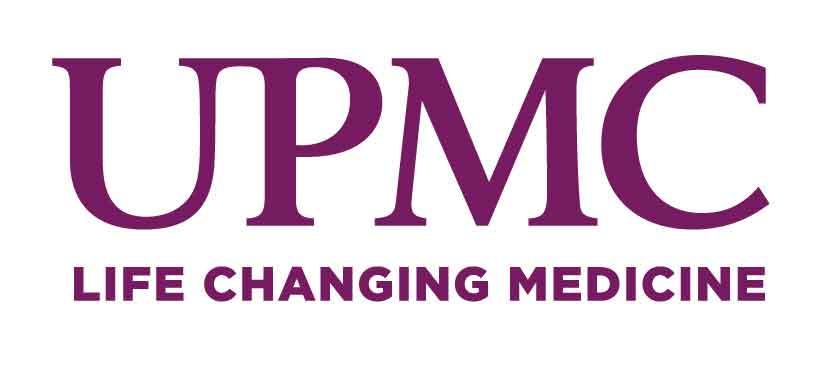UPMC: Blood Thinners Reduce Need for Cardiovascular and Respiratory Support in Certain COVID-19 Patients
Giving moderately ill, hospitalized COVID-19 patients a full dose of a blood thinner improved their chances of leaving the hospital without needing mechanical ventilation. But this strategy did not yield the same results for COVID-19 patients who were critically ill, who needed intensive care-level support at the time of enrollment.
These are the findings of two new studies published in The New England Journal of Medicine (NEJM). The studies incorporated data from three platform trials as part of a global collaboration to identify possible treatments during the height of the pandemic. The trials are “Accelerating COVID-19 Therapeutic Interventions and Vaccines-4” (ACTIV4a): A Multicenter, Adaptive, Randomized Controlled Platform Trial of the Safety and Efficacy of Antithrombotic Strategies in Hospitalized Adults with COVID-19, “Antithrombotic Therapy to Ameliorate Complications of COVID-19” (ATTACC), and “Randomized, Embedded, Multi-factorial Adaptive Platform Trial for Community-Acquired Pneumonia” (REMAP-CAP) Therapeutic Anticoagulation.
Led by researchers from the University of Pittsburgh School of Medicine, NYU Grossman School of Medicine and global collaborators, ACTIV4a was launched after researchers observed that patients who died from COVID-19 had blood clots throughout their bodies, including in their smallest blood vessels. Doctors saw antithrombotics—also known as blood thinners or anticoagulants—as potential treatment because they reduce the risk of clotting. But clinicians did not know whether a full therapeutic dose that is used to treat blood clots or a low dose typically used to prevent blood clots would be most effective.
Bryan McVerry release“Early on in the pandemic, doctors observed that blood clots in both large and small vessels were associated with severe disease in hospitalized patients with COVID-19,” said both NEJM studies’ co-first author Bryan McVerry, M.D., associate professor of medicine and associate division chief for strategy and development in Pitt’s Division of Pulmonary, Allergy and Critical Care Medicine. “The unprecedented global collaboration of multiple clinical trial networks demonstrated that early intervention targeting clotting can improve outcomes in COVID-19 and rapidly changed the landscape of treatment for the disease.”
Pitt’s Epidemiology Data Center is coordinating the ACTIV4a trial, under the leadership of Stephen Wisniewski, Ph.D., Pitt’s vice provost for budget and analytics, and Maria Mori Brooks, Ph.D., professor of epidemiology and biostatistics at Pitt’s Graduate School of Public Health.
As part of the research effort, the lead researchers of the three platform trials synchronized their study protocols to study the effects of using full and low doses of the anticoagulant heparin in patients hospitalized with COVID-19. Researchers grouped the patients according to whether they had severe or moderate COVID-19 and by their levels of D-dimer, a blood protein that may indicate clotting.
Moderately ill hospitalized COVID-19 patients were defined as those who did not receive “organ support,” including high-dose oxygen therapy, mechanical ventilation, life support, medicines that increase blood pressure or medicines that change the force of the heart’s contraction. Hospitalized COVID-19 patients who did require such support were defined as severe or critically ill.
In April 2020, the research teams started randomly assigning half of their hospitalized COVID-19 patients to receive either a low or full dose of heparin for up to 14 days after enrollment. By December 2020, oversight boards stopped enrollment of critically ill patients in the trial when interim results showed that full-dose anticoagulation did not reduce the need for organ support, and may cause harm, in severe and critically ill patients. One month later, oversight boards also stopped enrollment of moderately ill patients in the trial when interim results indicated that full doses of blood thinners likely did offer a benefit. The trial enrolled 1,098 critically ill and 2,219 moderately ill patients, and researchers measured how long patients were free of organ support, up to 21 days after enrollment in both cohorts.
Among moderately ill patients, the study authors found a 99% chance that full-dose heparin increased the probability of survival to hospital discharge with reduced need for organ support compared to those who received low-dose heparin. However, a small number of patients experienced major bleeding, though this happened infrequently. For critically ill patients, full-dose heparin also decreased the number of major thrombotic events, but it did not result in a greater chance of survival to hospital discharge, or a greater number of days free of organ support than usual care.
“These results are very exciting and lead us to better understand the impact of applying the right therapies at the right time in the course of this challenging disease,” says ACTIV4a study co-chair Judith Hochman, M.D., the Harold Snyder Family Professor of Cardiology, and senior associate dean for clinical sciences at NYU Grossman School of Medicine and a co-corresponding author of the moderately ill study. “Our results will help clinicians utilize known and easily available medical therapies to better treat moderately ill COVID-19 patients.”
ACTIV4a Antithrombotics Inpatient is conducting further research to test the effects of adding an anti-platelet agent to anticoagulation.
Matthew Neal release“More work needs to be done to continue to improve outcomes in patients with COVID-19,” said ACTIV4a study co-chair Matthew D. Neal, M.D., the Roberta G. Simmons Associate Professor of Surgery at Pitt, co-first author of the moderately ill study and co-senior author of the critically ill study. “Given what we know about the type of blood clots in patients with COVID-19, testing anti-platelet agents is a particularly exciting approach.”

